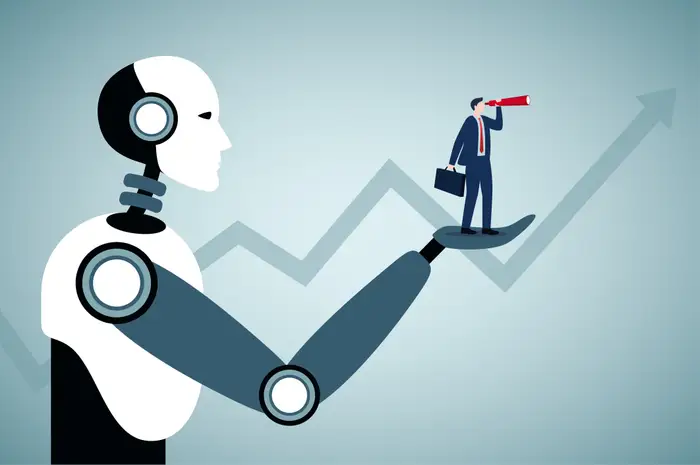Title: In An Unexpected Twist, AI Takes Over HR, Finance, and Tech Jobs
As the world grapples with the rapid advancement of technology, a quiet revolution is unfolding in the Australian job market. Artificial Intelligence (AI) is no longer a futuristic concept but a reality that is already taking jobs. Surprisingly, it’s not in the sectors you’d think. Australian CEOs might not be openly admitting it, but the first to go are those in Human Resources (HR), Finance, and paradoxically, the very industry that created the technology.
According to a recent study by McKinsey Global Institute, about 60% of all occupations could see at least a third of their activities automated. While we’ve all heard the predictions about AI replacing truck drivers, factory workers, and retail staff, it is the white-collar professionals in HR, finance, and tech who are feeling the heat.
In HR, AI is streamlining the recruiting process, making it easier to sort through thousands of resumes and identify the top candidates. Companies like PredictiveHire, a Melbourne-based firm, use AI to shortlist candidates based on a series of online questions. This technology not only saves time but also aids in eliminating unconscious bias, thereby promoting diversity in the workplace. However, the downside is that these AI systems are reducing the need for human recruiters.
In the finance sector, AI is increasingly being used for risk assessment, fraud detection, and investment planning. Robo-advisers, algorithm-driven online platforms that provide financial advice with minimal human intervention, have gained popularity in recent years. According to a report by Business Insider Intelligence, robo-advisers managed approximately $1 trillion globally in 2020, a figure projected to reach $2.5 trillion by 2024. With this shift, the role of traditional financial advisers is being threatened.
Perhaps the most unexpected sector facing job cuts due to AI is the tech industry itself. Programmers and software developers are experiencing a certain degree of automation. AI algorithms are now capable of writing code and testing software, tasks traditionally performed by humans. Companies like GitHub, a Microsoft subsidiary, have developed AI tools that can suggest code to developers, a move that could potentially reduce the demand for human coders.
However, it is essential to note that AI’s impact on jobs is not entirely negative. While some jobs are becoming automated, new roles are being created that require human skills AI can’t replicate. For example, as AI systems become more sophisticated, the demand for AI ethicists, tasked with ensuring AI systems are developed and used ethically, has increased. Similarly, the need for AI trainers, individuals who teach AI systems to perform tasks, has also risen.
Nonetheless, the rapid rise of AI and the consequent job displacement underscores the need for workers to adapt. Professionals need to upskill and reskill, embracing lifelong learning to stay relevant in the changing job market.
Australian CEOs and business leaders must also play a role. They need to be transparent about the impact of AI on jobs and provide support for employees facing job displacement due to automation. This can be in the form of retraining programs or helping employees transition into new roles.
The Australian government also has a role to play in managing the AI revolution. It needs to implement policies that encourage responsible AI use and invest in education and training programs to prepare the workforce for the future job market.
In conclusion, while AI is undoubtedly causing job displacement in unexpected sectors, it is also providing opportunities for new roles and industries. The challenge for Australia, like the rest of the world, is to manage this transition effectively, ensuring that the benefits of AI are widely shared and do not lead to increased social inequality.
The AI revolution is here, and it’s not where you’d think. It’s in the boardrooms and offices of HR, finance, and tech companies across Australia. The future of work is changing, and we need to change with it.
Related
 Crest RGB Christmas String Lights (10M)
1 × $34.00
Crest RGB Christmas String Lights (10M)
1 × $34.00  Shark MessMaster Portable Wet/Dry Vacuum
1 × $197.00
Shark MessMaster Portable Wet/Dry Vacuum
1 × $197.00 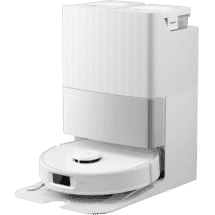 Roborock QRevo Edge C Robotic Vacuum
1 × $2,199.00
Roborock QRevo Edge C Robotic Vacuum
1 × $2,199.00  Remington Blow Dry And Style Caring Air Styler
1 × $129.00
Remington Blow Dry And Style Caring Air Styler
1 × $129.00  Sony 75" BRAVIA 3 4K HDR Google TV 24
1 × $1,695.00
Sony 75" BRAVIA 3 4K HDR Google TV 24
1 × $1,695.00  GoPro Hero13 Black
1 × $499.00
GoPro Hero13 Black
1 × $499.00  ASKO PF Heat Pump Drying Cabinet
1 × $5,999.00
ASKO PF Heat Pump Drying Cabinet
1 × $5,999.00 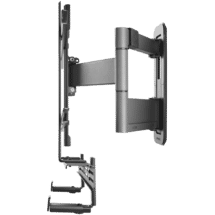 One For All Universal Flush Soundbar Holder
1 × $44.00
One For All Universal Flush Soundbar Holder
1 × $44.00  Crest Planet Humidifier with Projector Light
1 × $34.00
Crest Planet Humidifier with Projector Light
1 × $34.00 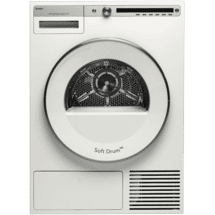 ASKO 10kg Logic Heat Pump Dryer
1 × $2,399.00
ASKO 10kg Logic Heat Pump Dryer
1 × $2,399.00  Arcade1Up Pac-man Deluxe Edition Arcade Machine
1 × $1,099.00
Arcade1Up Pac-man Deluxe Edition Arcade Machine
1 × $1,099.00  Hafele Squareline Sink G3 Single Bowl
1 × $499.00
Hafele Squareline Sink G3 Single Bowl
1 × $499.00  Philips 2000 Series 6.2 Litre XL Airfryer Black
1 × $149.00
Philips 2000 Series 6.2 Litre XL Airfryer Black
1 × $149.00  TP-LINK Tapo GU10 White Smart Downlight
1 × $15.00
TP-LINK Tapo GU10 White Smart Downlight
1 × $15.00  Sony Bravia Bar 9
1 × $1,595.00
Sony Bravia Bar 9
1 × $1,595.00 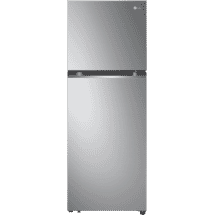 LG 315L Top Mount Refrigerator
1 × $695.00
LG 315L Top Mount Refrigerator
1 × $695.00 
